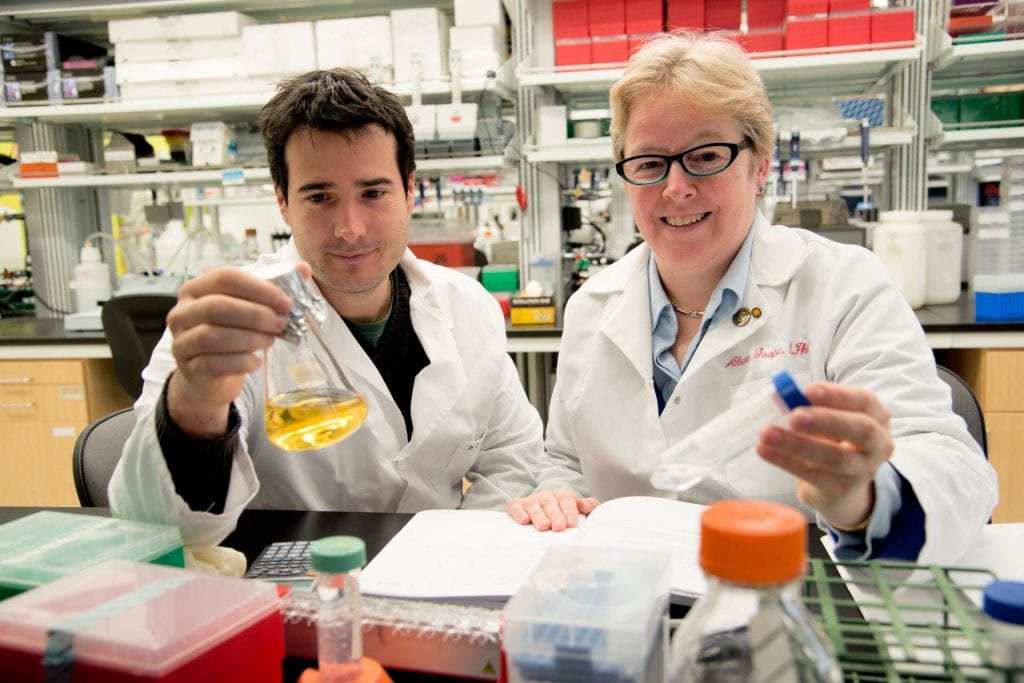Our last study, published in Nature identified a new gene (PLD3) for Alzheimer’s disease.
In this study, in which all the members from the lab (Peter Jin, Bruno Benitez, Yefei Cai, Jiyoon Choi and Breanna Cooper) and were involved, as well as several members from Dr. Goate lab, used exome-sequencing in late-onset (AD) families to identify a subset of variants that segregated with disease status in the 14 sequenced families. In average we found eight (8) variants segregating with disease status by family. One variant (PLD3-V232M) segregated with disease status in two families and we decided to follow-up that variant in large case-control datasets and by sequencing PLD3 in 4000 cases and controls. Both the single variant and gene-based analyses confirmed that PLD3 is associated with AD risk.
Functional studies, performed by Dr. Celeste Karch (Second author), found that PLD3 is involve APP metabolism.
We believe that using late-onset families as discovery or stage I is a very powerful approach to identify novel genes implicated on AD. Therefore we are following-up the additional variants that segregated with disease status, and at this moment we already have several good candidates. Additionally we are generating exome-seq data for additional 100 families, as well as using the publicly available data from the ADSP.
Similarly, additional functional studies are being performed to identify what is the PLD3 function in brain, and to characterize the pathological mechanism associated with the risk variants.
Official press release: https://news.wustl.edu/news/Pages/26263.aspx
Impact of the paper in the media (Altimetric): http://www.nature.com/nature/journal/vaop/ncurrent/nature12825/metrics
PLD3 a new AD gene (Nature)
